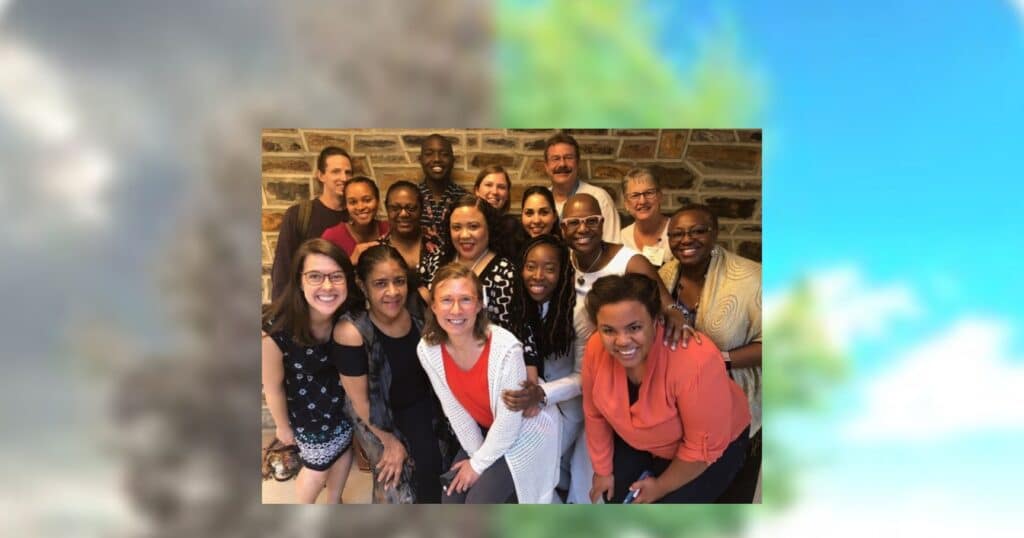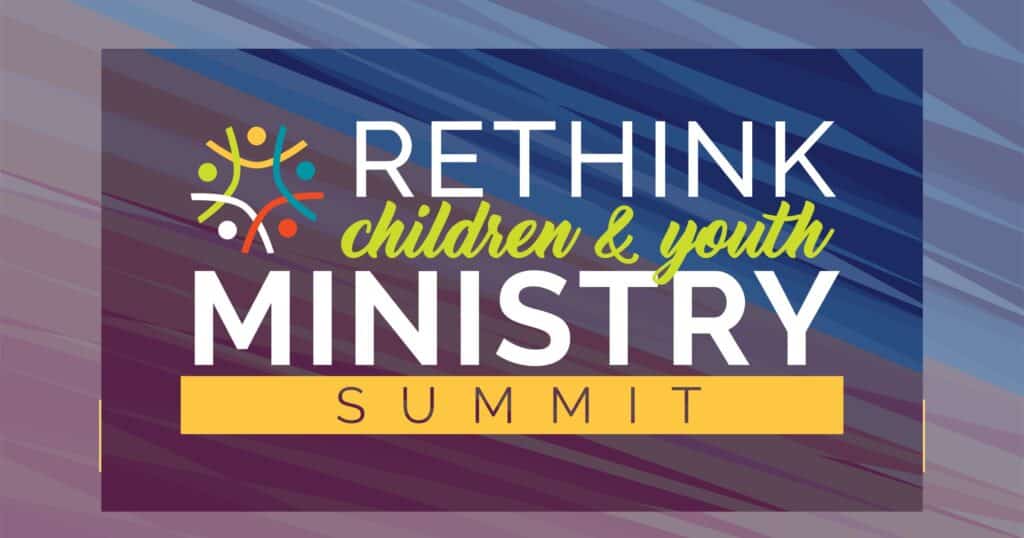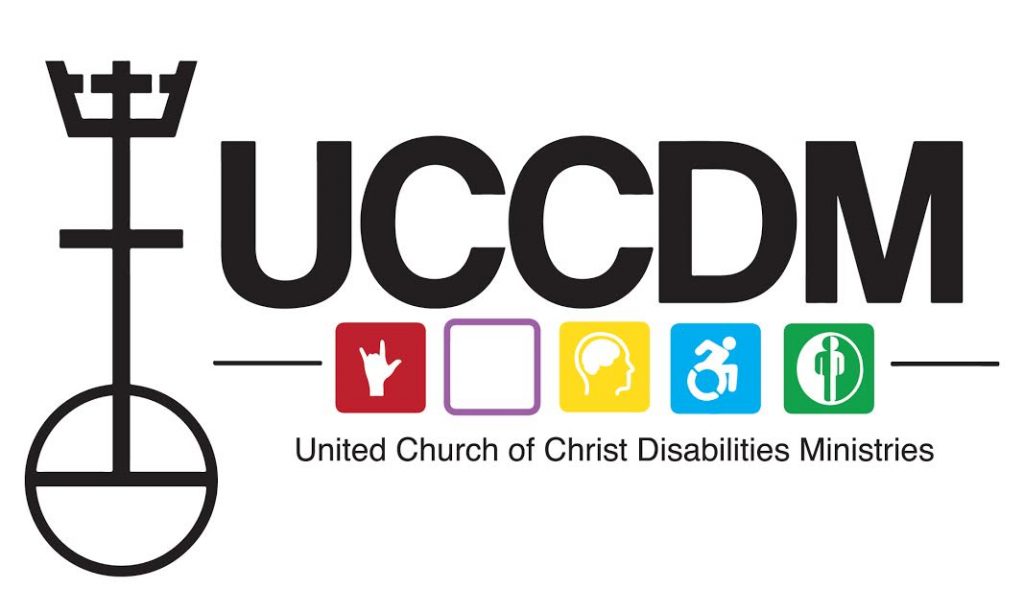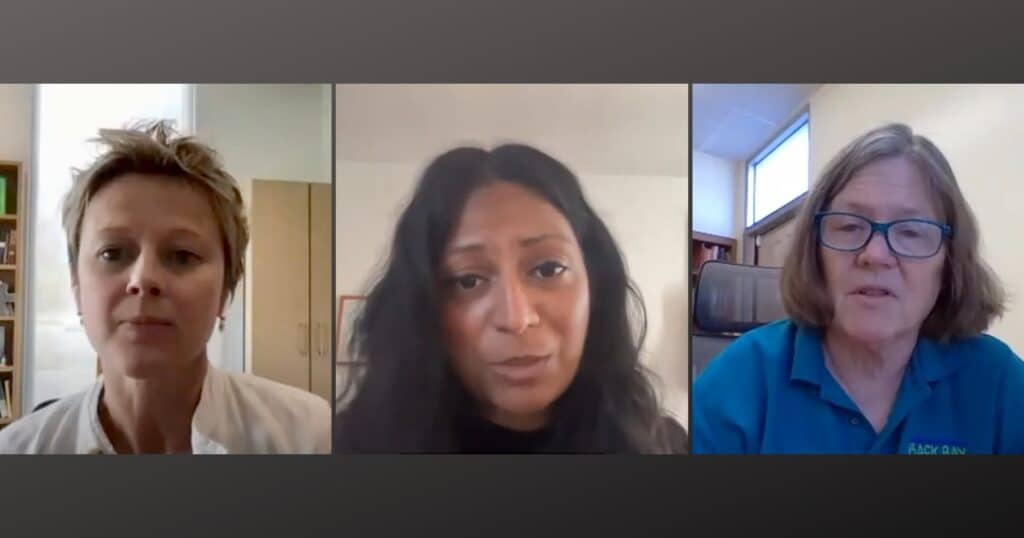UCC continues — and expands — its ways to be anti-racist
In 2020, a police officer murdered George Floyd — and interest in dismantling racism spiked in the United Church of Christ.
A year later, that interest is still high. And the UCC still offers four ways to become deliberately anti-racist. People can:
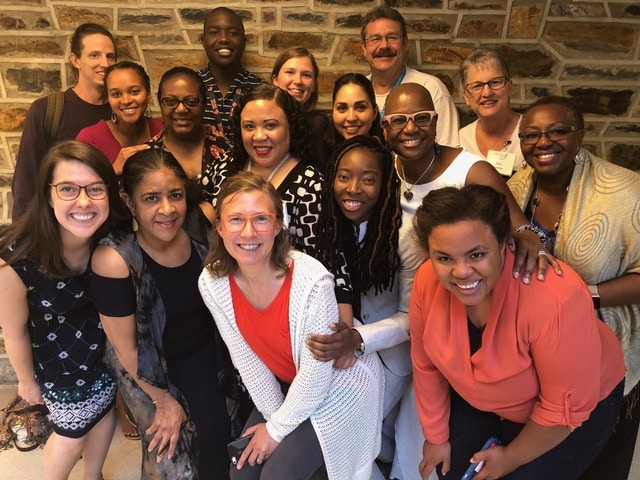
- Apply now to become a facilitator of “Sacred Conversations to End Racism,” also known as SC2ER. The curriculum’s creator, the Rev. Velda Love, will train 26 facilitators next year. The application form, found here, is due Dec. 31. The yearlong training starts Jan. 25, 2022.
- Request an SC2ER workshop as part of a congregation’s anti-racist work. Churches can email Love to consult about dates. She will design and lead the workshop — or, if unavailable, will suggest a facilitator to do so. There are 42 trained facilitators in the U.S. and one in Germany.
- Apply here to take part in an intensive, two-day workshop version of SC2ER.
- Get “White Privilege: Let’s Talk — A Resource for Transformational Dialogue.” It’s an earlier entry in the UCC’s list of anti-racism resources, available since 2016. A free download is available from UCC Resources or from the curriculum’s own web page.
And a new opportunity, coming soon, will build on all of this programming. “Join the Movement Toward Racial Justice,” announced in July at General Synod and expected to launch fully by the end of 2021, has a preliminary website up. There, people can sign up now to “answer God’s call to be an anti-racist church.” Those who do will receive racial-justice alerts, have a place to share their own racial-justice stories, and more. Love, the UCC’s minister for racial justice, was recently appointed to lead Join the Movement as well.
Applications welcome
The main emphasis at the moment is to get more people trained, vetted and certified as SC2ER facilitators, Love said. She reviews applications with several factors in mind. Among them, she said, is “experience with addressing racism among communities of color in general and anti-Black racism in particular,” she said.
“Other considerations include experiences within racial justice movements, advocacy, and activism participation. Local church contributions towards racial justice, such as leading or active participation in racial justice groups and organizations, are extremely important.”
She said trainees make commitments to:
Facilitators-in-training learn “how to feel the work, respond to acts of racism, reeducate others, and correct narratives that are specifically culture-centered.”
The Rev. Velda Love, UCC minister for racial justice
- Study “critical race history and its impact on contemporary racism. A deep dive into critical race history informs SC2ER trainees how to feel the work, respond to acts of racism, reeducate others, and correct narratives that are specifically culture-centered.”
- Embark “on a life-long restorative racial justice journey towards dismantling white supremacy ideology, colonialism, governmental policies, intentional violence against communities of color, and targeted abuses and murders of people of African descent.”
- Journey together “as a learning community.” “The goal is to remain actively engaged beyond the initial year of training,” Love said. “There are approximately 500-plus years to uncover, historical narratives to correct, and strategies to develop to address the reversal of civil and human rights for people of color in the U.S.”
A hundred people applied for the 2021 training cohort. Sixty of them are now taking the twice-monthly training workshops. Those who successfully complete the year will join an existing list of 34 trained in 2020 and nine trained in 2019.
‘Transformative vision’
The facilitators are helping to answer the demand for anti-racism education that boomed in 2020, after Floyd’s May 25 murder by then-Minneapolis Police Officer Derek Chauvin. Many of them assisted Love in leading a series of special five-week, online SC2ER “Institutes.” Offered quarterly from summer 2020 through the winter of 2021, the five-week intensives drew some 400 pastors and laypeople.
Those intensives have ended, but SC2ER offerings continue. Besides the two-day workshops, Love welcomes requests from local congregations and wider church bodies for specific SC2ER workshops and preaching engagements. Since 2017, dozens of them have been offered at:
- UCC local churches
- UCC Conference and Association annual meetings
- Ecumenical conferences
- National UCC board meetings
The point, Love said, is “to enter into dialogue, advocacy, and activism towards dismantling racism” — not as an end in itself, but as the beginning of a lifelong process. “Anti-racism work,” she said, “involves an inward interrogation of biases, prejudices, internalized white supremacy, internalized racism beliefs, and overt racist behaviors.”
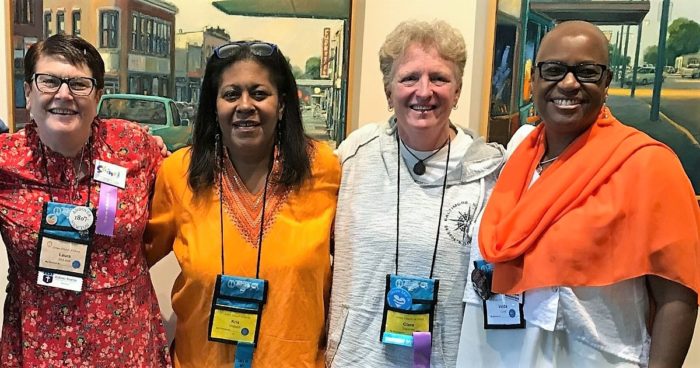
That work is hard but rewarding, said the Rev. Clare Twomey, pastor of Vista Grande UCC, Colorado Springs, Colo. She took the facilitator training in 2019. “To be clear, it is the most difficult course of study in which I have ever participated,” she said — and, “it has been the most liberating.”
“Sacred Conversations is an unprecedented invitation to be part of a transformative vision whose goal is to eradicate racism,” Twomey said. The process, she said, “requires commitment to study, a listening heart, a desire to share what you’ve learned and an immense amount of humility. I promise you will never be the same.”
Related News
Rethink Children and Youth Online Summit will delve into future of ministry for younger generations
Children and youth will be the focus of discussion at the Rethink Children and Youth Ministry...
Read MoreEngaging and Inclusive Worship grant: Call for focus group participants
The United Church of Christ National Setting has received a $2,000 grant originating from the...
Read More‘Brave Conversations’: Webinar speakers navigate interfaith relations in time of deep polarization
With the Middle East conflict fueling antisemitic and anti-Muslim rhetoric and violence in the...
Read More